Strides in sustainability
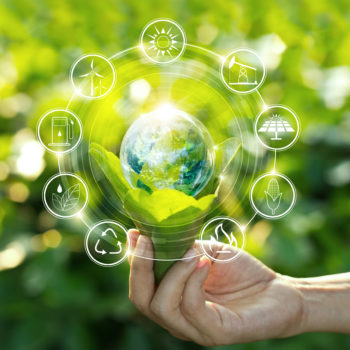
With research demonstrating that 80% of people want to live more sustainably, and 75% are calling on businesses to do more to help, companies that are making strides to improve their sustainability credentials are not only playing their part to protect our planet, but are also engaging eco-conscious customers and fortifying their brand loyalty as a result
22 March 2023
As consumers watch the climate crisis unfold, many have altered their consumption patterns to embrace more sustainable brands and products. Indeed, Accenture’s recent ‘The Sustainable Consumer: Bridging the Gap Between Aspiration and Action’ report found that 80% of people want to live more sustainably, and 75% are calling on businesses to do more to help.
Meanwhile, research from Every Can Counts revealed that 95% of people living in Ireland want to see more done by businesses to protect the environment, with the onus first and foremost on companies improving their packaging recyclability. Answering the call of these eco-conscious consumers, many brands have significantly boosted their sustainable profiles in recent years, with the companies displayed on these pages providing great examples of this.
“Society expects organisations to play their part in the community, economy, and environment, dealing with the big issues that we face today, not just in Ireland but globally,” said Niamh Boyle, managing director, The Reputations Agency, which published the Ireland RepTrak Sustainability Index 2022* in October.
“The results of the Ireland RepTrak Sustainability Index 2022, show us that the Irish public perceive over half of the 100 organisations studied to be doing either an inadequate (9%) or fairly mediocre (47%) job in sustainability, while the remaining 43% are perceived to have robust sustainability strategies in play. We know that many organisations are working hard and investing more each year in their sustainability agendas, but they continue to struggle to achieve cut through and to really embed themselves in consumers’ minds as leaders in sustainability,” Boyle added.
“Organisations are widely scrutinised on their alignment with social causes, their environmental impact, their behaviour, their values, and the internal culture they create. The public are more attuned to the reputation of an organisation than ever before, and for the public – actions speak louder than words,” Boyle added. “We know that sustainability, which in our study comprises environmental impact, social performance, conduct, and workplace, drives 51% of an organisation’s reputation but for many, their sustainability reputation is holding their overall corporate reputation back. These more intangible drivers and factors are now more important to an organisation’s reputation than the products or services an organisation sells.”
*(Source: The Ireland RepTrak Sustainability Index 2022 study was independently carried out by The Reputations Agency, based on the views of over 6,500 members of the public in the Republic of Ireland who participated in an online survey for over two months from 3 January to 14 March 2022)
Sustainability at the heart of business
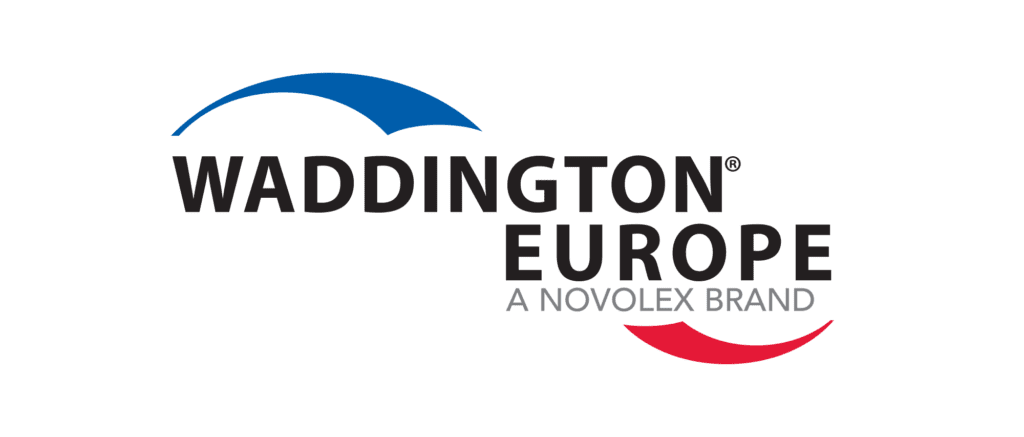
Waddington Europe, a Novolex brand, is a premier European food packaging specialist with key manufacturing facility in Arklow, Co. Wicklow. It is a highly experienced and trusted supplier of food packaging solutions across a wide range of categories including bakery, dairy, produce, protein, food-to-go, confectionery, pet food and more.
The brand’s site at Arklow (formally Holfeld Plastics); established in 1978 and acquired by Waddington Europe in 2014, has become a leading rigid plastics packaging manufacturer creating high-quality, innovative products and solutions. Environmental sustainability is at the heart of all its business decisions, and the company is committed to minimising the impact of its activities on the environment.
Waddington Europe Arklow helps customers meet their own environmental commitments by offering high-recycled content and lower carbon footprint products. The brand designs sustainable food packaging products for recyclability and continually works to reduce the amount of material used in its products through downgauging.
Its Eco Blend Pura and Eco Blend 100 products are made of 100% recycled PET (rPET), most of which is purchased locally from Shabra, Ireland’s leading recycler and reprocessor of post-consumer waste (PCW). Eco Blend products are fully recyclable too, offering customers circularity in their packaging solutions at competitive prices.
Waddington Europe is also proud to have achieved Zero Waste to Landfill certification across all its production sites.
Through exceptional service, execution and an unwavering focus on sustainable and innovative solutions, Waddington Europe strives to make a difference to its customers, communities and the planet every day. For more information, visit www.waddingtoneurope.com.
Q&A with…Eduardo Gomes, managing director, Waddington Europe
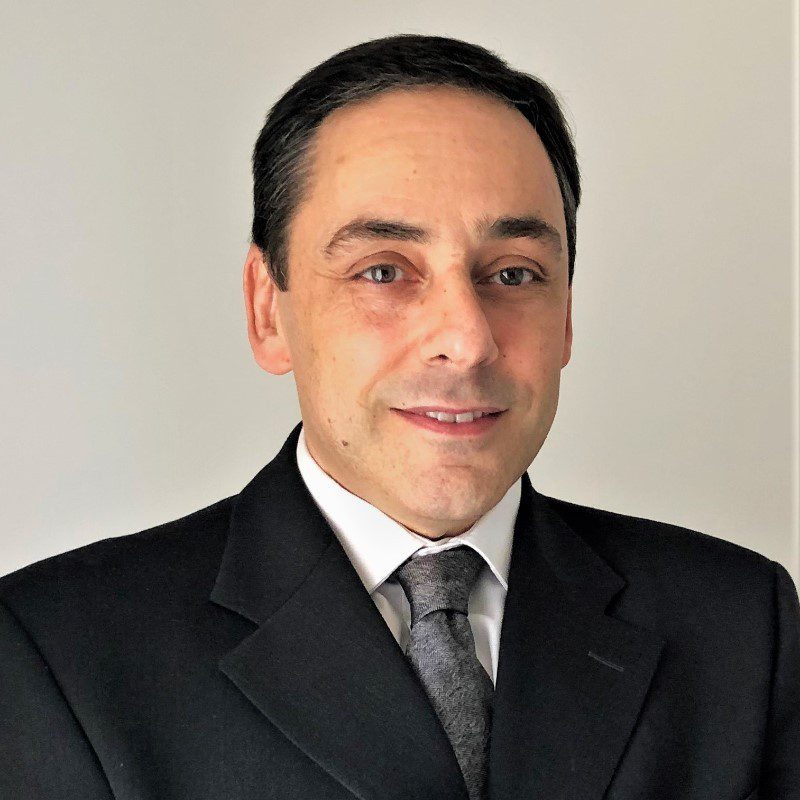
Eduardo Gomes
Q: What type of food packaging do you manufacture?
A: With a key manufacturing site in Arklow, Co. Wicklow, Waddington Europe is a leading supplier of food packaging for a variety of sectors, including bakery, dairy, produce, food-to-go, desserts, meat, chicken, fish, pet food and a lot more. Our site at Arklow, formally Holfeld Plastics, manufactures rigid plastics packaging that is clear and lightweight, providing customers with high-quality, innovative products and sustainable solutions.
For example, we manufacture Eco Blend Pura, our premium range of 100% rPET (recycled PET) trays that are also fully recyclable. Made entirely from post-consumer plastic waste, these products demonstrate true circularity, keeping plastic out of landfills by turning discarded bottles, pots and tubs into new food trays. We’re one of only a few suppliers that can truly offer and maintain the supply of 100% recycled plastic at a competitive cost.
These products are very important to us because they help our customers meet their environmental goals.
Q: Do you design bespoke packaging for small companies or is it more large scale?
A: We cater to both large and small companies, but a majority of our customers are large scale. We are a vertically integrated company. That means we can provide a complete end-to-end packaging supply service, including design, extrusion, tooling manufacture and thermoforming.
It’s important to know that we use a flexible, streamlined approach to increase efficiency and give our customers more bang for their buck. We constantly are improving our processes to boost productivity, allowing us to manufacture at high volume with minimal waste.
Our teams are always working to bring unique product solutions to market, with a strong focus on innovative, sustainable solutions. We’re excited about the ingenious products we have coming to market soon.
Q: What companies do you currently work with?
A: We work across a wide range of brands and retailers. We don’t measure them by size but rather the added value that we can bring to their businesses. Most of our customers are food packers and processors that supply the big retailers, as well as independent brands and distributors. Increasingly, we are working closer with retailers, as their focus on sustainability drives them to be more closely involved with the supply chain at all levels.
We are all about innovation. This means finding sustainable solutions, optimising the weight of packaging, protecting food from waste and ensuring the highest-quality products for our customers, and their customers.
Q: What makes your packaging eco-friendly?
A: Our commitment to environmental sustainability and the circular economy runs deep. We design our sustainable food packaging products for easy and full recyclability, encourage the use of materials that promote circularity, and work to reduce the amount of material used in our products through downgauging. Our efforts include:
- Introducing Monoair, a mono material soft fruit punnet with built-in cushion technology that doesn’t need additional bubble padding to prevent fruit bruising. That creates less plastic and makes recycling much easier for consumers and the material recycling facilities (MRFs).
- Launching Piranha, a mono material modified atmospheric pack (MAP) tray that seals the film lid for greasy contents like meat, fish and poultry using a series of raised teeth. That eliminates the need to apply a layer of polyethylene or adhesive, which traditionally can cause contamination in the recycling stream.
- Making products with Eco Blend 100, which is 100% rPET, a mix of post-consumer and post-industrial waste that is fully recyclable.
- Introducing Hot Fill rPET220 containers made from recycled plastic. These ground-breaking rPET products can withstand temperatures of up to 130°C, making them convenient packaging options for microwavable sauces, soups and ready meals.
- Teaming up with Shabra, Ireland’s leading recycler and reprocessor of post-consumer waste (PCW). We’re purchasing food-grade rPET sourced from bottles, pots, tubs and trays to manufacture new rPET food packaging products at our Arklow production site.
We also actively work with all our suppliers, customers and contractors to improve their environmental performance and sustainability efforts as well.
Q: How do you manage your waste?
A: We strongly support sustainability in our internal business as well. All staff receive waste training including plastic segregation in their induction when they first start and participate in ongoing refresher courses. We continually evaluate operations to minimise waste and ensure we are as efficient as possible. All three of our manufacturing sites have achieved ‘Zero Waste to Landfill’ certification from Valpak.
We’ve also launched company initiatives such as placing filters on every external drain to prevent plastic pellets from entering the water system.
Q: What do you believe needs to change with current food packaging solutions to ensure it is more sustainable?
A: At Waddington Europe we already design for recycling at scale as part of our new product development (NPD) process.
However, we still need everyone working together to resolve the wider issues of packaging and sustainability. This means producers, consumers, businesses and governments all must play a role.
We are working hard to do our part by offering as many sustainable options as possible, while developing innovative new packaging solutions to meet all our customers’ needs, but it’s also important for everyone to focus on the whole carbon footprint of packaging — not just what happens to it at the end of its life. Every product has an optimal substrate for its packaging, and we are here to help our customers find the best solution for their product.
Focusing on the carbon footprint of food packaging will give customers more informed choice. It will also ensure we take a holistic view of a substrate, beyond just its environmental impact at end of life, but throughout its whole lifecycle. This also will help customers choose the right substrate with the optimum carbon footprint for the product it protects (wet, dry, frozen, etc.). Finally, it will help prevent a poor decision to move all products to just one sole form of packaging substrate, which will just lead to larger environmental issues and other problems down the line.
There is a place for all packaging material substrates. As plastic recycling is a well-understood waste stream, we can build on that by keeping plastic packaging circularity as local as possible, ensuring its carbon footprint stays as low as possible.
Make the switch
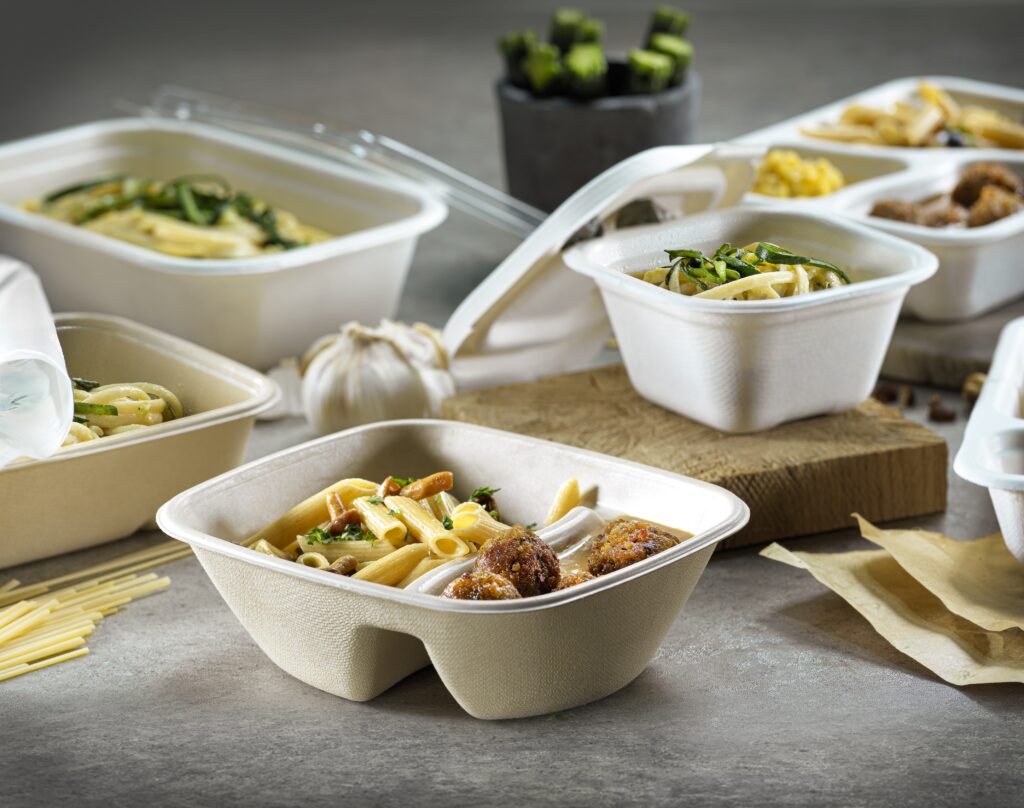
Reach Delpac’s sustainable collection includes everything from cups, bags, cutlery, food packaging and much more
Reach Delpac is one of Ireland’s leading suppliers of customised and generic packaging with a large focus on sustainable food packaging.
As a leading packaging supplier, Reach Delpac recognises its responsibility to minimise heavy burden single-use plastics and other unsustainable packaging products. The company has therefore sourced a complete range of sustainable packaging products that are fully compostable and biodegradable.
The company’s sustainable collection includes everything from cups, bags, cutlery, food packaging and much more – even with the option for a bespoke solution. Reach Delpac carefully select its products from leading brands in sustainable packaging such as Naturesse which is 100% climate neutral. All Naturesse products are made of rapidly renewable raw materials, completely compostable and of course aesthetically designed! Reach Delpac’s sustainable packaging is available on its website at www.reach-delpac.ie.
The brand advises retailers to make the switch to sustainable packaging today with Reach Delpac.
www.reach-delpac.ie | custservices@reach-delpac.ie | +353 (0) 23 885 8107
Q&A with…Russell and Garrett Walsh, co-founders of VivaGreen
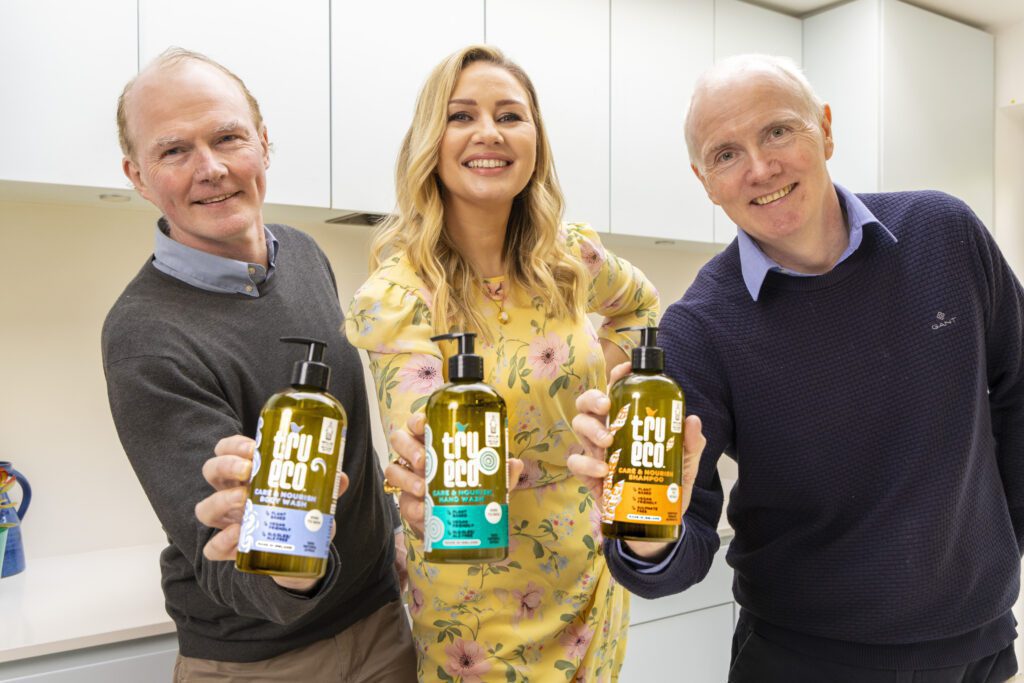
VivaGreen co-founders Russell and Garrett Walsh, with Anna Daly, the award-winning TV broadcaster and owner of ethical lifestyle brand, Little Bliss, who is also an ambassador for VivaGreen
Q: What inspired you to launch a new product range in personal care products, particularly a hand wash, a body wash, and a shampoo?
A: The successful launch of our existing Tru Eco range of eco-friendly laundry and household cleaners combined with positive feedback from stores and customers asking for hand wash, body wash and shampoo products, inspired us to extend the range. Developing these category-leading products not only allows for high volume sales but also allows us to substitute standard products with an eco-friendly alternative.
Our new Tru Eco personal care range is affordable, accessible, and effective to meet the needs of conscious consumers seeking kinder solutions for their skin and hair.
Q: Who is your target audience for these products?
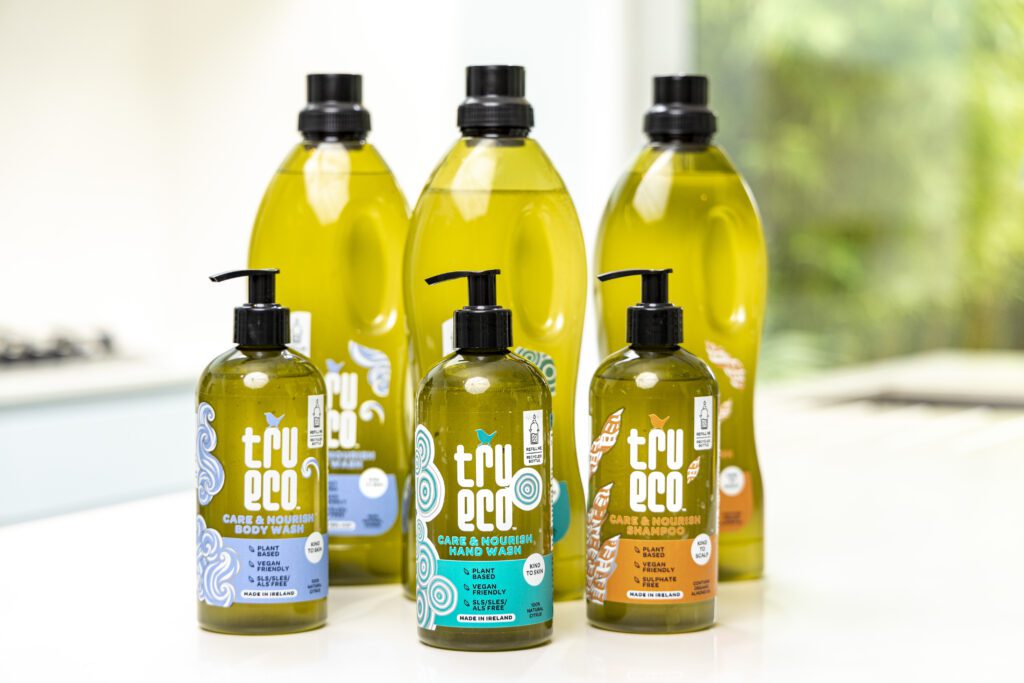
The Tru Eco range has now been expanded to include eco-friendly personal care products
A: These products are perfect for conscious consumers who are looking for sustainable and affordable skin care items that are kind to their skin and hair, the planet, and their pockets.
Typically, people who are environmentally conscious and want to reduce their impact on the planet. Our new Tru Eco personal care products are gentle with natural ingredients and safe for kids therefore parents who are concerned about the health and safety of their children are a key target audience. Also, Millennials and Gen Z, who are known for their concern for the environment and desire for sustainable products and health and wellness enthusiasts who prioritise their health and wellbeing and are interested in using eco-friendly personal care products that are free from harmful chemicals.
Q: What is the unique selling proposition (USP) of your product range? What sets it apart from other similar products in the market?
A: The Tru Eco personal care range offers consumers a healthy and more affordable option compared to similar products on the market. The range is eco-friendly and refillable and by refilling consumers can save up to 36% while also reducing their plastic waste.
Tru Eco personal care products are for people who are mindful of the environmental and seeking kinder products for their skin and hair at an affordable price. The products are free from harmful chemicals and are formulated using gentle plant-based surfactants, natural fragrance oils and absent of colourants making them kind to all skin types including dry and sensitive skin.
By buying VivaGreen’s products, consumers are supporting a local, eco-friendly Irish business, and reducing their plastic waste footprint, and environmental impact as well as lowering carbon emissions.
Q: How have you developed the formulas for these products, and what kind of ingredients have you used?
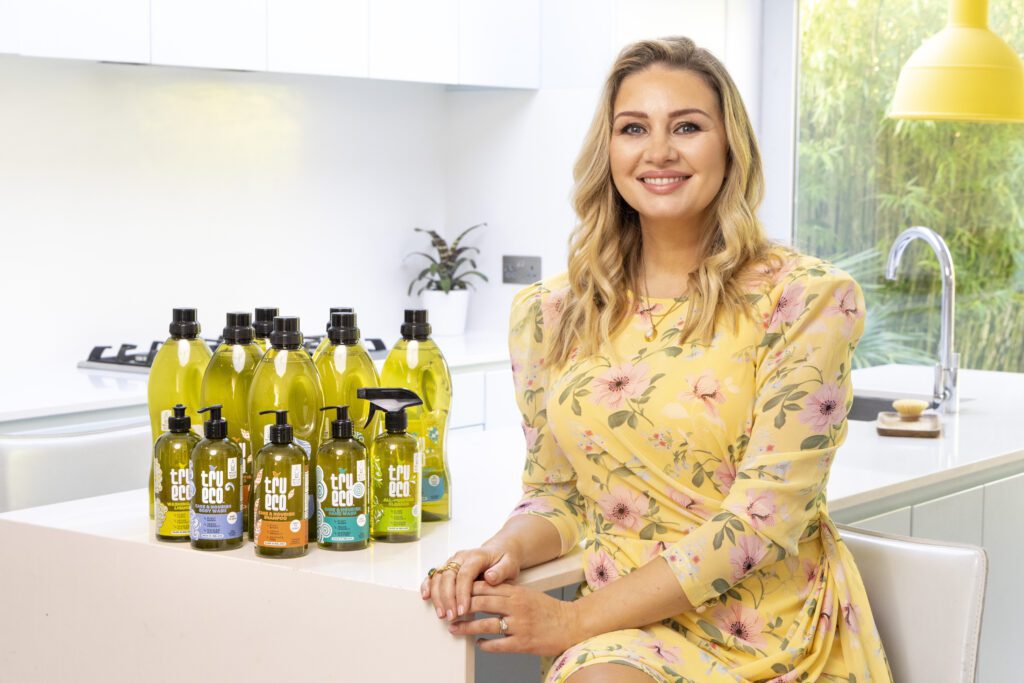
TV broadcaster Anna Daly believes in what VivaGreen and its Tru Eco range are doing for the future of our planet
A: We developed our new personal care range with VivaGreen’s lead researcher, Dr Anne Marie Mahon. Dr Mahon is a marine biologist, ecologist, and environmental scientist with a background in research and development. Dr Mahon was involved in the research of these products and setting out the credentials and standards for the products in terms of efficacy, health, and environment. She managed the process of sourcing ingredients which would satisfy these criteria for example, what oils would deliver the best results for skin and hair, determining the formulation and procedure of manufacturing and testing the final products through the Cosmetic Product Safety Assessment.
The new Tru Eco personal care range has undergone rigorous testing and has passed the Cosmetic Product Safety Assessment, which is mandatory for cosmetic products in the UK and EU “to confirm the product is within the safety limits as set by the UK and the EU” and involves all stability and microbiological testing required to place a cosmetic product on the market.
Q: What kind of packaging have you chosen for your products?
A: About 8 million tonnes of plastic enters our oceans each year and plastic bottles are one of the top litter items found in aquatic environment. Using products that have a refill option helps consumers to do their bit to protect the planet by preventing plastic from going in to landfill and into our rivers and oceans, which can affect water quality, habitats, and associated wildlife. It can also affect the quality of the water we drink.
As with the current Tru Eco range of laundry and household cleaners, the new personal care range focuses on a circular economy approach. Each bottle is made from 100% recycled plastic which is recyclable and refillable, creating a circular economy product range.
Q: What is your overall marketing strategy for these products, and what kind of message do you want to convey to your target audience?
A: We are investing in an exciting PR and marketing campaign that involves a combination of traditional PR, print and radio advertising and digital marking including social media and search engine optimisation tailored to the target audience. The Tru Eco personal care range will also be supported in-store though promotions, shelf talkers, FSDUs and shelf-edge fins.
The messaging will be simple and true to our brand values. We are focusing on the quality of our new personal care products and promoting our brand values which is developing eco-friendly products made in Ireland at an affordable price for consumers.
Q: Are you planning to use any celebrity endorsements for your products, and if so, who are you considering and why?
A: Yes, we are delighted to be working with Anna Daly, the award-winning TV broadcaster and owner of ethical lifestyle brand, Little Bliss. We really admire Anna’s enthusiasm, professionalism, and work ethic. We are both members of Guaranteed Irish and we believe she will resonate with our target audiences hugely. It made sense for us – Anna is also a mother of three young boys and believes in what we are doing for the future of our planet. Watch out for Anna in April during the consumer campaign launch and via her social media channels.
Creating tomorrow together
 Musgrave MarketPlace is leading by example to help combat some of the world’s biggest environmental and social issues at a local level with its ‘Creating Tomorrow Together’ initiative.
Musgrave MarketPlace is leading by example to help combat some of the world’s biggest environmental and social issues at a local level with its ‘Creating Tomorrow Together’ initiative.
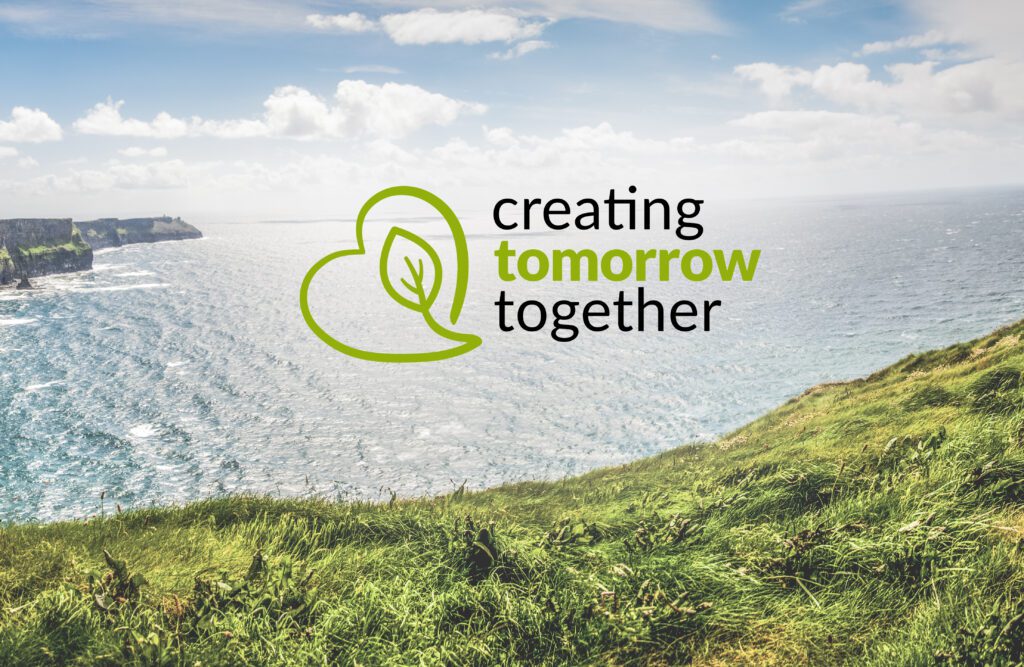
Musgrave MarketPlace’s ‘Creating Tomorrow Together’ initiative outlines a comprehensive plan to help tackle global environmental and social issues on a local level
As well as its commitment to transforming the business to be net zero by 2040, with 40% of its transport using a sustainable fuel source by 2025, Musgrave MarketPlace currently works with over 800 Irish suppliers, 100% of its fresh beef and lamb is Irish, and all seven branches use 100% green electricity. Now, Musgrave MarketPlace is dialling up its focus on becoming the leading foodservice partner brand on food waste.
Partnering with FoodCloud, Musgrave MarketPlace has provided 1.2m meals to local charities since 2016 – preventing over 1.6m kilos of CO2-equivalent emissions entering landfill. But how can they help customers with food waste? A recent EPA report estimated 150,000 tonnes of food waste is thrown out by the Irish foodservice industry every year! It’s a recurring area of concern for their foodservice customers so, Musgrave MarketPlace are now working to help them.
On 4 April 2023, Musgrave MarketPlace will host a live event and webinar to support customers on their food waste journey. Joined by a range of guest speakers including Eoin Cluskey, owner of Bread 41, Niall Hill, foodservice industry consultant and food waste expert, and WRAP, which is using its resources and tools to support the foodservice industry in the reduction of food waste globally. They will discuss managing food waste at every step, summer menu planning with food waste in mind, and top tips for getting started and making it happen in your business.
To find out more about the event, follow Musgrave MarketPlace on Facebook, Instagram and LinkedIn.
A uniting force
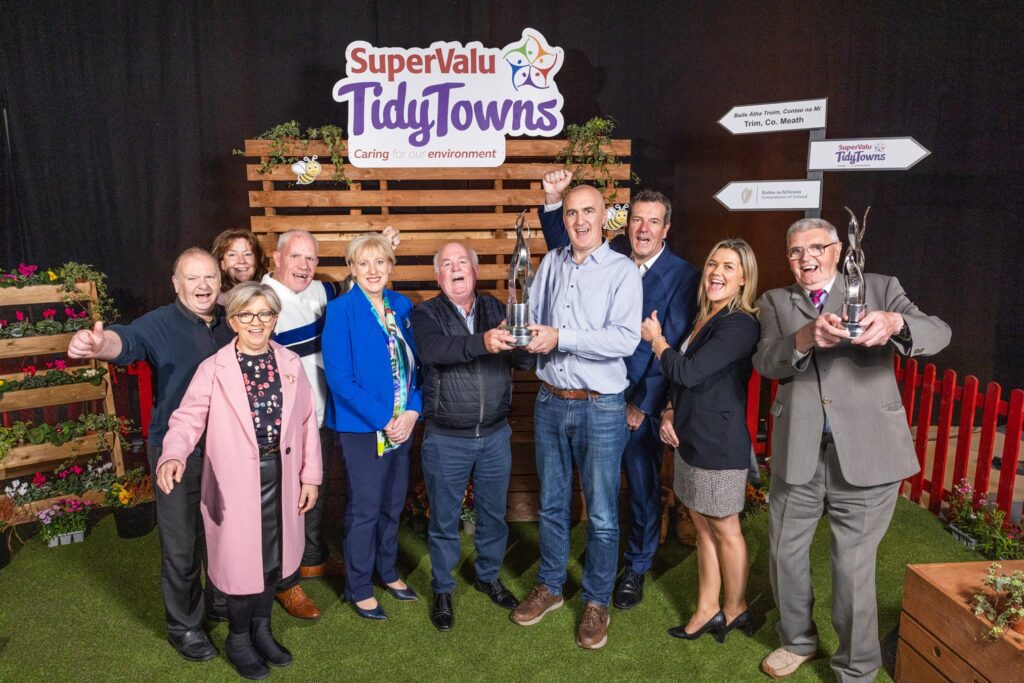
At the SuperValu Tidy Towns Awards ceremony in the RDS, Dublin was Anthony Conlon and chairperson Brian Heffernan (holding trophy) with Minister for Rural and Community Development, Heather Humphreys TD (at left); and Ian Allen, managing director of SuperValu and Centra (right of centre); along with committee members as Trim, Co. Meath was announced as Ireland’s Tidiest Town for 2022
Musgrave is a proud Irish family-owned business, with a 145-year heritage in food and brand innovation. Its unique ownership structure and commitment to Ireland gives it an unrivalled, passion and pulse in local communities. The independent retail model, means Musgrave takes a long-term sustainable view on the decisions it makes with retailers, ensuring Musgrave delivers a positive impact on the communities in which the group and its retailers operate.
In 2019, Musgrave was selected to become one of Ireland’s first SDG Champions due to its ongoing commitment to and leadership in operating a sustainable business.
A core value of Musgrave is long term stable relationships, which is evidenced in SuperValu’s 33-year partnership with TidyTowns and the successful extension of that partnership agreement to 2027. SuperValu is fully aligned to the fundamental core values of SuperValu TidyTowns, encouraging communities to improve their local environment and make their area a better place to live, work and visit.
Over the last 65 years, TidyTowns has become a hugely effective and important sustainability initiative in Ireland, both from an environmental and community perspective. Since the inception of the partnership between SuperValu and TidyTowns over 33 years ago, the competition has grown from strength to strength. In 1990 there were 616 committees; today there are 1,000 active committees and a solid movement of almost 30,000 volunteers enhancing and improving towns and villages around the country.
Over the last three decades SuperValu and the TidyTowns unit of the Department of Community and Rural Development, have worked hand in hand to develop and grow SuperValu TidyTowns to what it is today, a uniting force, gathering people from all parts of the community to work together for a common cause.
SuperValu TidyTowns is a unique community movement, unparalleled in Europe which has a huge impact on our communities. The continued success and growth of SuperValu TidyTowns is an endorsement of the dedication, commitment and passion of the thousands of volunteers involved in the hundreds of committees across the length and breadth of Ireland.
SuperValu is very excited for the future of TidyTowns and convinced that it will have an even more critical role to play in sustainably developing our communities. SuperValu believes that positive change will start in our communities and is very excited for what the next five years of the sponsorship will deliver.
Expect more from every cup
Nescafé, Ireland’s largest retail coffee brand*, is set to launch ‘Expect more from every cup’. A new campaign under the Nescafé Gold Blend, this aims to show how the brand focuses on sustainability from the farmers who grow coffee, to the way coffee is produced, packaged, and used.
The campaign launches in Ireland on 3 April and highlights some of the brand’s sustainability achievements. This includes 100% responsibly sourced coffee being used in all Nescafé products made in the UK, the use of coffee grounds to help power its Nescafé factory in the UK and the launch of a soft pack to refill glass jars.
Over the last decade, Nescafé has worked to make coffee farming practices more sustainable around the globe through the Nescafé Plan. Building on those efforts, the Nescafé Plan 2030 defines its sustainability vision for the next decade – to help coffee farmers transition to regenerative agriculture practices and in doing so, reduce greenhouse gas emissions and improve farmers’ livelihoods. With 6,000 cups of Nescafé consumed every second, the brand is committed to using its scale and reach to ensure it can make a positive impact in people’s lives and the planet, from farm to cup.
For more information, visit nescafe.com/make-your-world.
*(Source: Nielsen Retail Sales Value 52 w/e 29 Jan 2023)
Plastic packaging recycling and your business
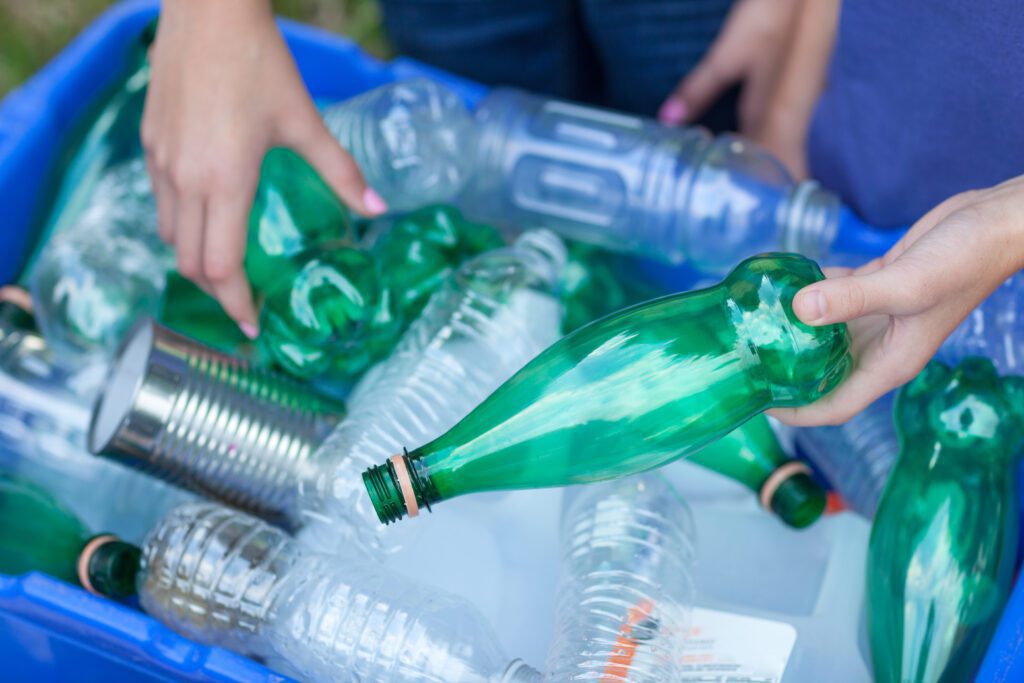
The new EU plastic packaging recycling targets will be more challenging for Ireland to meet
EU packaging recycling targets
In 2018 the European Union updated a number of directives covering waste as part of its overall Circular Economy Package. As a result of these changes, the EU Packaging and Packaging Waste Directive (94/62/EC) was amended with higher targets for packaging reuse and recycling to help increase recycling rates for all packaging placed on the market across Europe.
In 2020 the Irish government published an amendment to SI 282/2014 – European Union (Packaging) Regulations 2014. This amendment (S.I. No. 322/2020) increased recycling targets for packaging in line with the new European legislation.
As a result, Ireland’s recycling targets for 2025 and 2030 have increased for packaging overall as well as for each of the individual packaging materials placed on the Irish market.
The below table shows current and future EU packaging recycling targets:
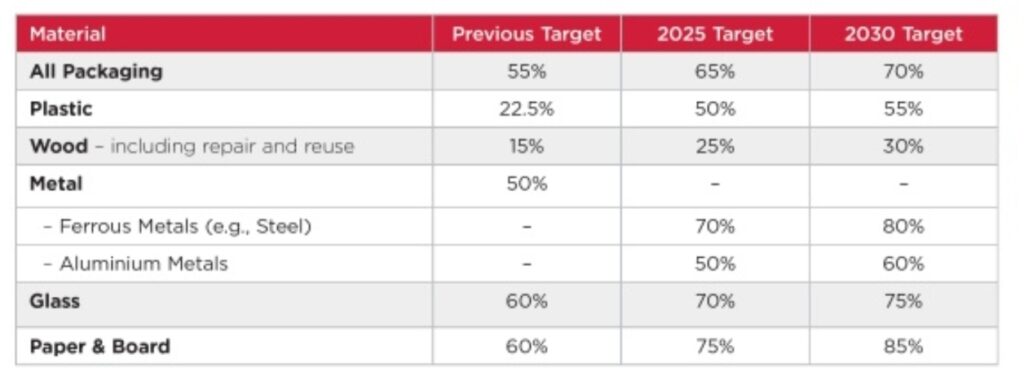
A challenge for Ireland
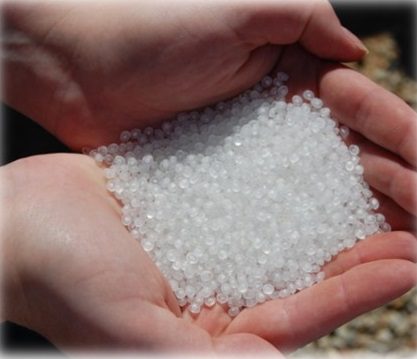
Creating recycled plastic pellets is usually the final step in the recycling process before the material is distributed for the industrial production stage
At present Ireland meets all of the previous EU targets set in the Packaging & Packaging Waste Directive. In fact, we already exceed 2025 targets for wood (66%) and paper & cardboard (75%). In the case of glass recycling, we already exceed our 2030 targets with a current recycling rate of 85%*.
However, the new plastic packaging recycling targets will be more challenging for Ireland to meet and present an opportunity for Ireland to change the way in which we manage these often complex materials which currently have a recycling rate of 33%**.
To achieve the new EU targets of 50% by 2025 and 55% by 2030 will require a dramatic change by all stakeholders in order to capture more of this material. This will require behavioural change amongst consumers, changes to how the materials are handled by businesses and treated by the waste industry as well as investments in local plastic recycling infrastructure here in Ireland.
The business opportunity
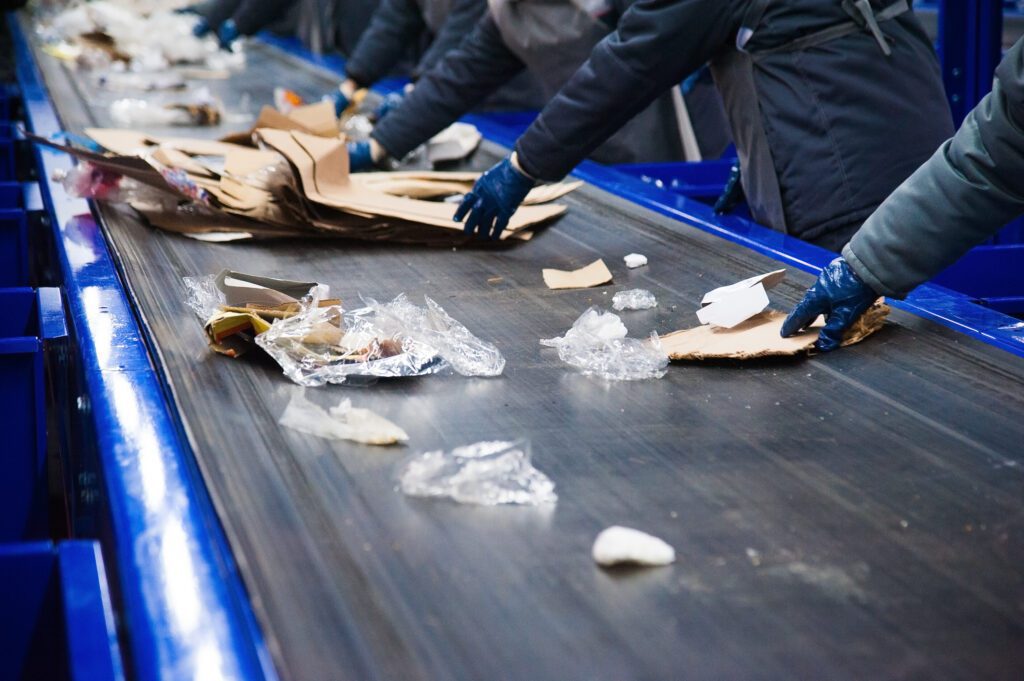
It is important that your business segregates all recyclable packaging
As a packaging compliance scheme, Repak funds the recycling of packaging waste in order to help Ireland meet its packaging recycling targets. A significant opportunity still remains to capture more plastic and other packaging from commercial premises.
Currently this is often not possible due to poor waste segregation practices on site as a result of:
- Recyclable plastic packaging being discarded in business general waste bins.
- Material being too contaminated when placed in a recycling bin, making it unsuitable for recycling.
- Waste collection infrastructure or services that do not meet the current needs of the businesses.
Although this is a concern, it must also present a significant opportunity to increase plastic packaging recycling rates given circa 50% of all packaging waste generated in Ireland arises at commercial premises.
What can you do?
First of all, it is important to note that there are legal obligations on Irish businesses when it comes to the segregation of packaging waste.
Regulation 5 of the European Union (Packaging) Regulations 2014 as amended states that:
- Producers should ensure that packaging waste is separated at source, by material type.
- Packaging waste should be collected by a contractor for the purposes of recycling.
Further regulations covering this area are due to be published in 2023. This will require that a three-bin system for recycling, food waste and general waste be provided to all businesses and that incentivised pricing be applied to maximise recycling and discourage placing recyclable items in general waste bins.
It is important therefore that your business is segregating all recyclable packaging. Plastic packaging materials such as plastic pallet wrap, shrink hoods, case wrap and pallet sheets should be separated from other types of waste. If in doubt about what your waste contractor will accept in the recycling bin or in bales, ask them for their assistance.
It is also essential that these recyclable materials are kept as clean and dry as possible so that they are suitable for recycling at the point of collection.
What to expect from your waste contractor
Waste contractors have a significant role to play in helping you to maximise recycling at your premises. It is therefore critical to ensure that they are providing the following offering:
- At least a three-bin service for recycling (general waste, organic waste and mixed dry recycling).
- Support in order to source segregate by material where possible such as through baling of plastic film, bottles and the separation of other recyclable items such as drums or barrels. These items are usually manufactured from highly recyclable plastics such as Polyethylene (LDPE or HDPE), Polyethylene Terephthalate (PET) or Polypropylene (PP).
- A breakdown of what the waste contractor is doing with your waste showing:
- what materials are being recycled,
- what materials are being recovered or disposed,
- food waste collected,
- the associated cost of all of the above.
This can usually be provided on a monthly basis and can help you track trends over the year to see how well you’re managing and any further improvements that might be needed.
The more material that is being recycled, the lower the cost. In fact, it is important to note that source segregated material that has been baled is often collected free of charge.
Shortfalls in current arrangements
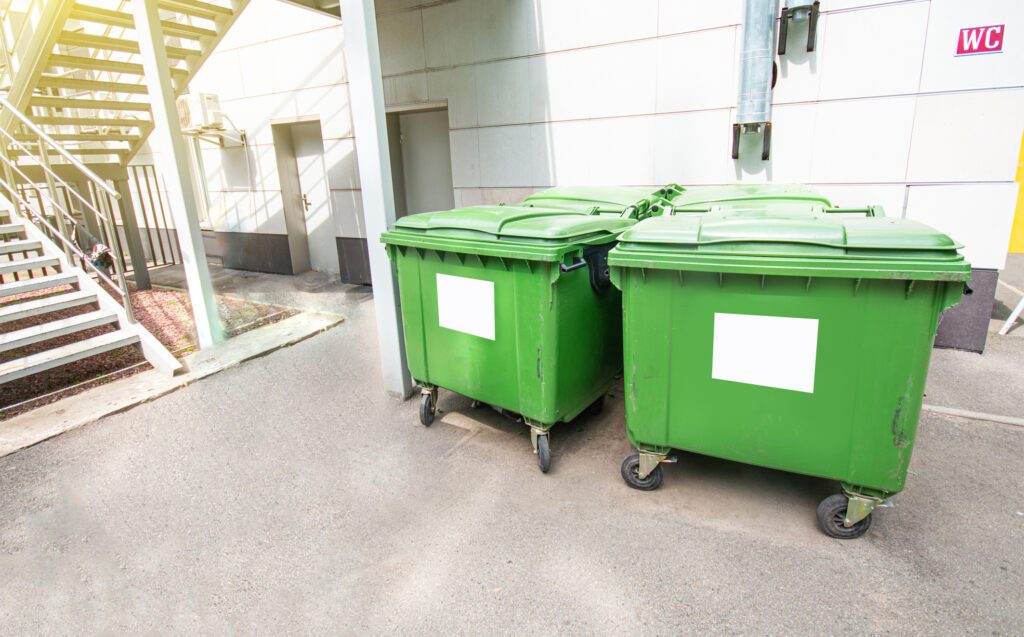
A significant opportunity still remains to capture more plastic and other packaging from commercial premises
A significant opportunity still remains to capture more plastic and other packaging from commercial premisesIf you are having challenges achieving good segregation on-site due to the bins or balers you currently have, it is important to engage with your waste contractor who can advise on how you improve this and implement the changes within an agreed timeframe. It is also important to note that improvements in recycling rates will not only help the environment but can reduce costs for your business.
Evaluate and review your waste services on a regular basis. A list of waste contractors (Repak approved recovery operators) is available on Repak’s website at www.repak.ie.
If you need any additional support, you can also contact the packaging services team at Repak at preventandsave@repak.ie or call Repak on 01 467 0190.
*(Source: Waste Packaging Statistics for Ireland – https://www.epa.ie/our-services/monitoring–assessment/waste/national-waste-statistics/packaging/)
**(Source: Repak estimates for 2022)
Ireland’s first electric 20-tonne HGV truck hits Irish roads
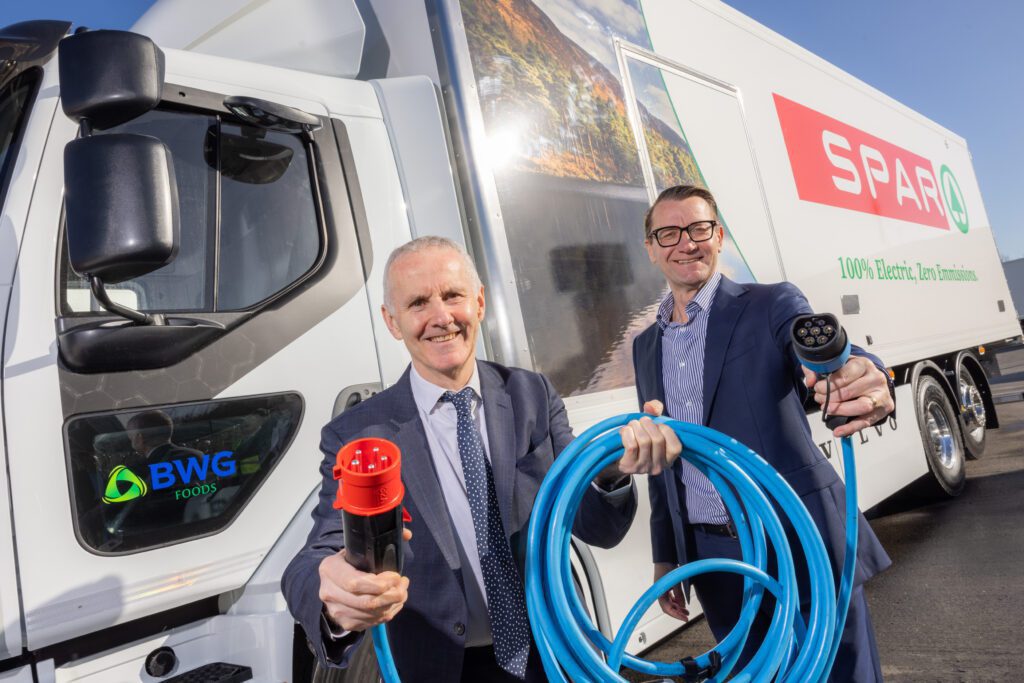
Ciáran Cuffe, MEP with Simon Marriott, chief operating officer, BWG Foods pictured at the announcement that BWG Foods has added Ireland’s first electric heavy good vehicle (HGV) in the 20-tonne category to its sustainable fleet
BWG Foods, one of Ireland’s leading wholesale and retail groups, today announced a significant development in its transition to a low carbon distribution operation through the launch of Ireland’s first electric heavy good vehicle (HGV) in the 20-tonne category, representing a €400,000 investment as part of a pioneering programme to test innovative low carbon technologies.
The 20 tonne Volvo electric truck, which has capacity for up to 33 pallet spaces, is powered by four 240 kWh batteries, providing a range of up to 250 kilometres. BWG Foods, owners and operators of the Spar, Eurospar, Londis, Mace and XL brands, has allocated the new vehicle to undertake inter depot delivery operations in addition to nationwide store deliveries, using fast charging to increase daily range.
BWG Foods expects the new electric addition to its expansive low carbon delivery fleet to deliver approximately 80 tonnes of C02 savings annually when compared with conventional diesel power trucks, with the average BWG delivery truck covering 100,000 kilometres per year. This milestone development brings BWG’s low carbon delivery fleet to 32 HGV vehicles, combining Biogas, Compressed Natural Gas and Electric, reinforcing the group’s status as having Ireland’s most sustainable delivery fleet.
Speaking about the launch of the new vehicle, Simon Marriott, chief operations officer, BWG Foods said, “This is another very significant moment in our transition away from fossil fuels in favour of cleaner, more sustainable fuel sources and we are deeply committed to continuing our journey by pioneering the newest breakthrough technologies across our entire supply chain. We already have plans to build on this momentum with the launch of Ireland’s first electric tractor unit this Spring, in further collaboration with our partners in Translink Express and Volvo, and it is our hope that these steps will help provide confidence to our peers across the wider business community that these solutions are viable and worthy investments.”
Commenting on the milestone, Member of European Parliament, Ciáran Cuffe said: “This is an exciting step in Ireland’s journey to a low carbon transport fleet and serves as an example of what is possible across Ireland’s distribution and logistics sector. This new vehicle, the first of many electric HGVs that we will see on Irish roads in the coming years, provides a cleaner and quieter alternative and will be supported by a new major infrastructure plan that will look to provide significantly increased access to nationwide charging points over the coming years. We are also working on new legislation at the EU level that could see a phase-out date for new fossil fuel trucks adopted in the coming years, as we have already done for cars and vans. Europe is going electric, and early investors will lead the way to a more sustainable future.”
In addition, BWG Foods is also transitioning a number of its delivery trucks across to Hydrogenated Vegetable Oil (HVO), following a collaboration with Inver Energy. Inver Energy’s HVO is a renewable fuel made from used cooking oil and is one of the most advanced biofuels on the market, providing a path to 90% CO2 reductions without capital intensive vehicle investment.
These latest developments follow the recent addition of 10 new bio-methane powered HGVs to BWG’s distribution fleet in December following a €2 million investment. BWG Foods contributes non-consumable food waste from its distribution operations to produce biogas fuel for its new biogas vehicles, making this a circular solution that is unique in Ireland.
BWG Foods’ award-winning logistics division is amongst the largest in the country, supplying over 1,000 stores nationwide which together serve over one million people per day, along with a further 14,000 additional business customers across the retail, foodservice and licensed sectors.
Upcoming Deposit Return Scheme
Ireland’s Deposit Return Scheme (DRS) going live in February 2024 will be an exciting step in the country’s transition to a more circular economy. Peter Whelan, sales manager Ireland, Tomra Collection UK & Ireland explains that the scheme will help to tackle the estimated 1 billion plastic bottles and 1.6 million aluminium cans that are thought to currently end up in landfills/incinerators or littered in the environment (Source: Voice Ireland).
In a deposit return scheme, a refundable deposit is placed on single use drinks containers, which consumers pay when purchasing their drinks. This is then refunded to the consumer when they return their bottles and cans for recycling.
Ireland’s DRS will include PET plastic bottles and metal cans and is planned to be a ‘return to retail’ scheme. This means that retailers will offer a return point for shoppers to return their empty bottles and cans for recycling and also pay back the deposit per container.
There are two ways of offering a return point: manual take back or by using a reverse vending machine. With manual take back, retailers accept bottles back over the counter, and scan and store them for collection. With a reverse vending machine, the machine automates the process: scanning the containers, storing them and paying out the deposit.
In other countries around the world, Whelan states that retailers who sell larger volumes of drinks containers usually see a benefit when automating returns with a reverse vending machine.
Retailers will receive a handling fee from the scheme administrator, Re-Turn, for every eligible container that they collect. This handling fee is a designed to cover the costs associated with DRS and the exact amount will be published as we get closer to the scheme go live date.
Retailers should register as a return point via the Re-Turn website. For those retailers planning to use reverse vending equipment, start thinking about where a machine could go in the store. Tomra offers machines as small as 0.6 sq. m, reducing how much space is needed.
Ireland’s deposit return scheme will be a change for retailers, but DRS is a tried and tested system running successfully in many countries including in Norway, Sweden, Finland, and Germany, amongst others. In these countries, retailers successfully provide this recycling service for their shoppers, and it has become a part of the overall shopping experience expected by consumers.
To find out more about deposit return schemes and reverse vending technology, visit tomra.com.
Net results!
Tesco Ireland recently launched a new re-usable netted bag for loose fruit and vegetables. The new bag, which can be used over and over, will replace the traditional pinch and pull plastic bag and will offers customers a more sustainable option for bagging loose produce.
The bag is made from 100% recycled plastic bottles, is washable and can be recycled at clothing and textile banks. They are priced at 49 cent and are now available across the retailers 164 stores nationwide.
“We are always looking at new and innovative ways that reduce the use of plastic in our business,” said Joe Manning, commercial director, Tesco Ireland.
Indeed, Tesco Ireland has already made strides in making its packaging as sustainable as possible. In 2019, the company made a series of sustainability commitments, including a pledge that all packaging on Tesco own-label products will be fully recyclable by 2025.
Among its achievements to date the company has successfully removed all plastic-wrapped multipacks, replacing them with plastic-free multibuys, removing 1.5 million pieces of plastic wrap each year from items such as tinned tomatoes, tuna, and sweetcorn.
The company is also the first retailer in Ireland to create a recycling solution for soft plastics. In-store collection points can be found in all stores and customers can simply remove unwanted soft plastic packaging – such as cling wrap or outer wrap from water bottle multi-packs – at the end of their shopping trip.
Overall, Tesco Ireland has a net zero target of 2035 for its own operations and a commitment to cut emissions including those generated by the products it sells and across its supply chains to zero by 2050.
Britvic Ireland appoints Sian Young as director of Sustainable Business
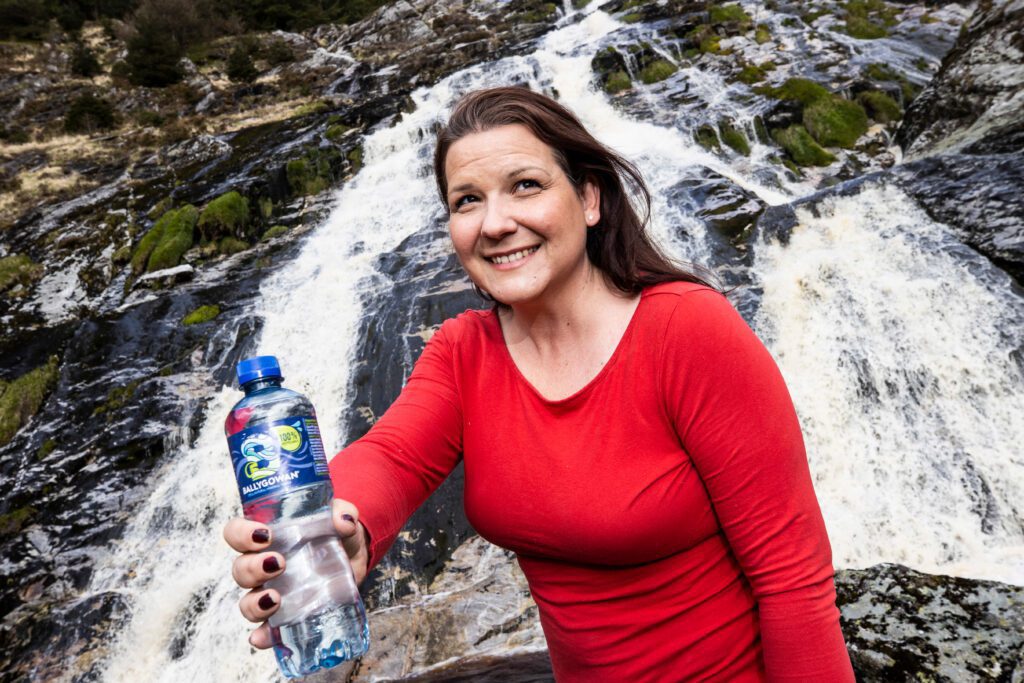
Sian Young
Britvic Ireland, one of Ireland’s leading soft drinks companies and home to iconic brands such as MiWadi, Ballygowan and Club, has appointed Sian Young to the Ireland executive team as director of Sustainable Business.
In this newly created role, Young will be responsible for Britvic Ireland’s ‘Healthier Planet’ strategy and delivery. She will oversee strategic areas of delivery such as Beyond-the-Bottle, a key element of the business’ packaging transformation plan to develop new technologies that offer hydration options while helping reduce the use of plastic; and the business’ response to Ireland’s incoming Deposit & Return Recycling Scheme. She will also manage other aspects of Healthier Planet across the business, including carbon reduction, packaging evolution, water usage and waste.
An Experimental Psychology graduate of the University of Oxford, Young is an experienced marketeer and sustainability specialist who has worked for Britvic for over 15 years.
In January 2020 she was appointed to ‘head of Sustainability’, giving her responsibility for the Sustainability Strategy across the whole Irish business. In October 2020 she was appointed head of People & Planet at Britvic Ireland, which brought together her responsibilities for Sustainability with also leading the People Strategy for Ireland, working closely with Britvic PLC to ensure that Britvic Ireland is aligned with the broader business.
Managing director of Britvic Ireland, Kevin Donnelly said he was delighted to announce Sian Young’s appointment, noting: “This key appointment to the Irish executive team allows us to build on Sian’s previous work as head of People and Planet at Britvic Ireland and reflects the centrality of sustainability to the strategic direction and success of our business.”
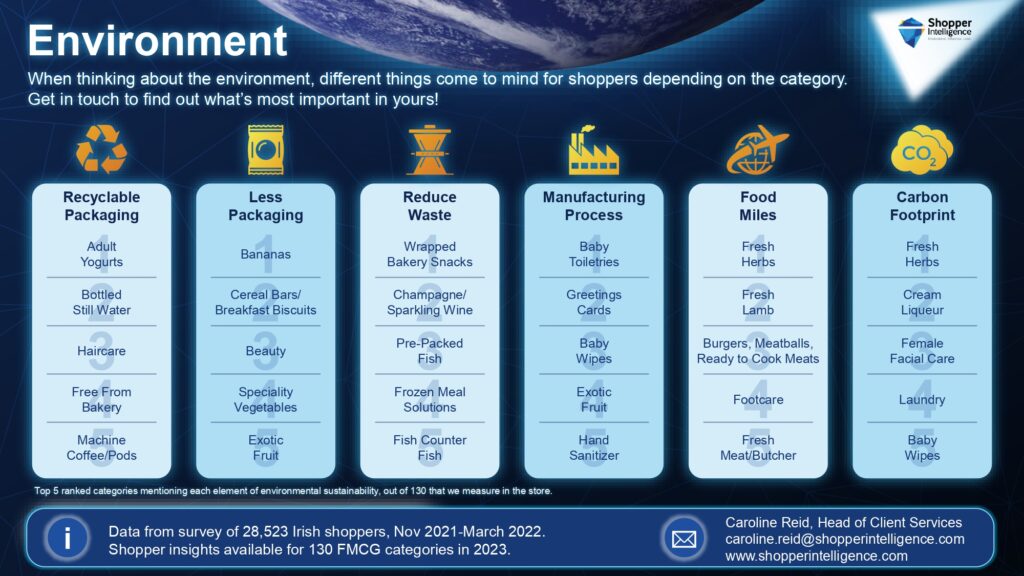



 Print
Print

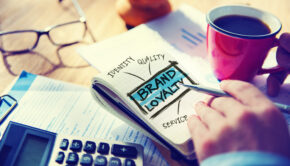




Fans 0
Followers